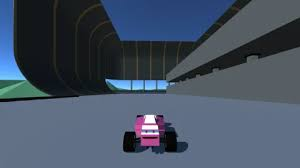Master Poly Track: Essential Poly Track Racing Tips
Last Updated: May 15, 2025

1. Fundamental Poly Track Racing Strategies
Mastering poly track racing requires understanding the core mechanics that separate amateur drivers from professional poly track champions. The foundation of successful poly track gameplay lies in developing precise vehicle control, strategic track navigation, and optimal timing techniques. Professional poly track players emphasize the importance of smooth acceleration patterns, calculated braking points, and maintaining consistent racing lines throughout each poly track session. These fundamental skills form the backbone of advanced poly track strategies that enable players to achieve competitive lap times and dominate multiplayer racing competitions.
Essential Vehicle Control Techniques
Effective poly track vehicle management begins with understanding how different cars respond to various track conditions and racing scenarios. Each poly track vehicle features unique handling characteristics, acceleration profiles, and braking capabilities that directly impact racing performance. Experienced poly track players recommend practicing with multiple vehicle types to develop versatility and adaptability across different racing situations. Mastering throttle control, steering precision, and weight transfer dynamics enables drivers to extract maximum performance from their chosen poly track vehicles while maintaining stability through challenging track sections.
2. Advanced Poly Track Racing Techniques
Optimal Racing Line Strategies
The racing line represents the fastest path through any poly track circuit, combining geometric principles with vehicle dynamics to minimize lap times. Professional poly track racers study track layouts extensively, identifying optimal entry points, apex positions, and exit strategies for each corner sequence. Understanding how to adjust racing lines based on vehicle characteristics, track conditions, and competitive situations gives poly track players significant advantages in both time trials and multiplayer races. These advanced techniques require consistent practice and careful analysis of telemetry data to perfect.
Braking and Acceleration Optimization
Mastering braking and acceleration techniques separates good poly track players from exceptional ones. Effective braking involves understanding threshold braking, trail braking, and brake balance adjustments that maximize deceleration while maintaining vehicle stability. Similarly, acceleration optimization requires precise throttle application, traction management, and power delivery timing that prevents wheel spin while maximizing forward momentum. These poly track skills become particularly crucial during overtaking maneuvers and defensive driving situations in competitive multiplayer environments.
3. Track-Specific Poly Track Strategies
Circuit Analysis and Preparation
Each poly track circuit presents unique challenges that require specific preparation strategies and tactical approaches. Successful poly track racers invest time studying track layouts, identifying key overtaking zones, and understanding elevation changes that affect vehicle behavior. Weather conditions, track surface variations, and environmental factors all influence optimal poly track strategies for different circuits. Developing circuit-specific setups and racing approaches enables players to adapt quickly to new tracks while maintaining competitive performance levels throughout diverse poly track racing scenarios.
Multiplayer Racing Tactics
Competitive poly track multiplayer racing demands advanced tactical thinking beyond pure speed and vehicle control. Understanding opponent behavior patterns, predicting racing moves, and executing strategic overtaking maneuvers require extensive experience and situational awareness. Successful poly track competitors develop skills in defensive driving, slipstream utilization, and psychological pressure application that provide advantages in close racing situations. These tactical elements transform poly track racing from individual time trials into dynamic competitive experiences that reward strategic thinking and adaptability.
4. Performance Optimization and Setup
Vehicle Tuning and Customization
Advanced poly track performance requires understanding vehicle setup principles that optimize handling characteristics for specific tracks and racing conditions. Suspension tuning, aerodynamic adjustments, and gear ratio optimization significantly impact lap times and competitive performance. Experienced poly track players experiment with different setup configurations, analyzing how changes affect vehicle behavior and overall racing performance. This technical knowledge enables drivers to extract maximum potential from their poly track vehicles while adapting to various racing scenarios and track conditions.
Practice and Skill Development
Consistent improvement in poly track racing requires structured practice routines that target specific skill areas and performance metrics. Professional poly track players recommend focusing on individual track sections, practicing specific techniques repeatedly, and analyzing performance data to identify improvement opportunities. Regular practice sessions should include time trials, multiplayer races, and technical exercises that develop muscle memory and racing instincts. This systematic approach to skill development accelerates learning curves and enables players to achieve competitive performance levels more efficiently.
5. Mental Preparation and Racing Psychology
Concentration and Focus Techniques
Mental preparation plays a crucial role in poly track racing success, particularly during high-pressure competitive situations. Developing concentration techniques, stress management strategies, and focus maintenance skills enables drivers to perform consistently under pressure. Professional poly track racers emphasize the importance of mental rehearsal, visualization exercises, and mindfulness practices that enhance racing performance. These psychological tools become particularly valuable during championship events and competitive tournaments where mental strength often determines final results.
Learning from Mistakes and Setbacks
Every poly track racer experiences mistakes, crashes, and disappointing results that provide valuable learning opportunities. Developing resilience, analytical thinking, and constructive self-evaluation skills enables players to transform setbacks into improvement catalysts. Successful poly track competitors maintain positive attitudes while critically analyzing their performance, identifying specific areas for improvement, and implementing targeted practice strategies. This growth mindset approach accelerates skill development and builds the mental toughness required for competitive poly track racing success.
